Resources
Here you can search external resources from STOP Spillover's experts (tagged in blue) and resources developed by the STOP Spillover project (tagged in red).
We found 142 resources.
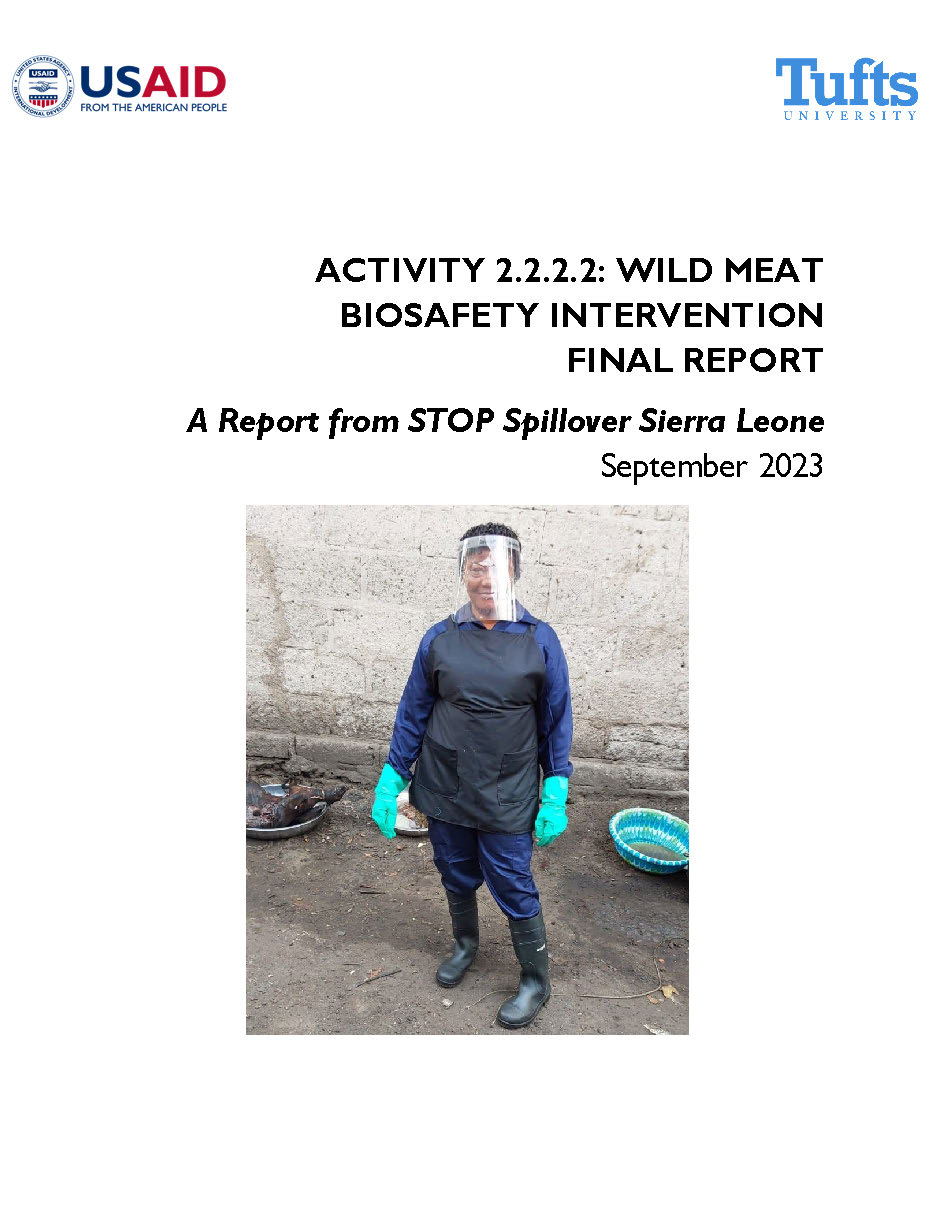
Wild Meat Biosafety Intervention Final Report
This report presents results from the final three months of implementation of biosafety practices among wild meat traders and processors in the Kingsway Corner Wet Market in Kenema District in Sierra Leone.
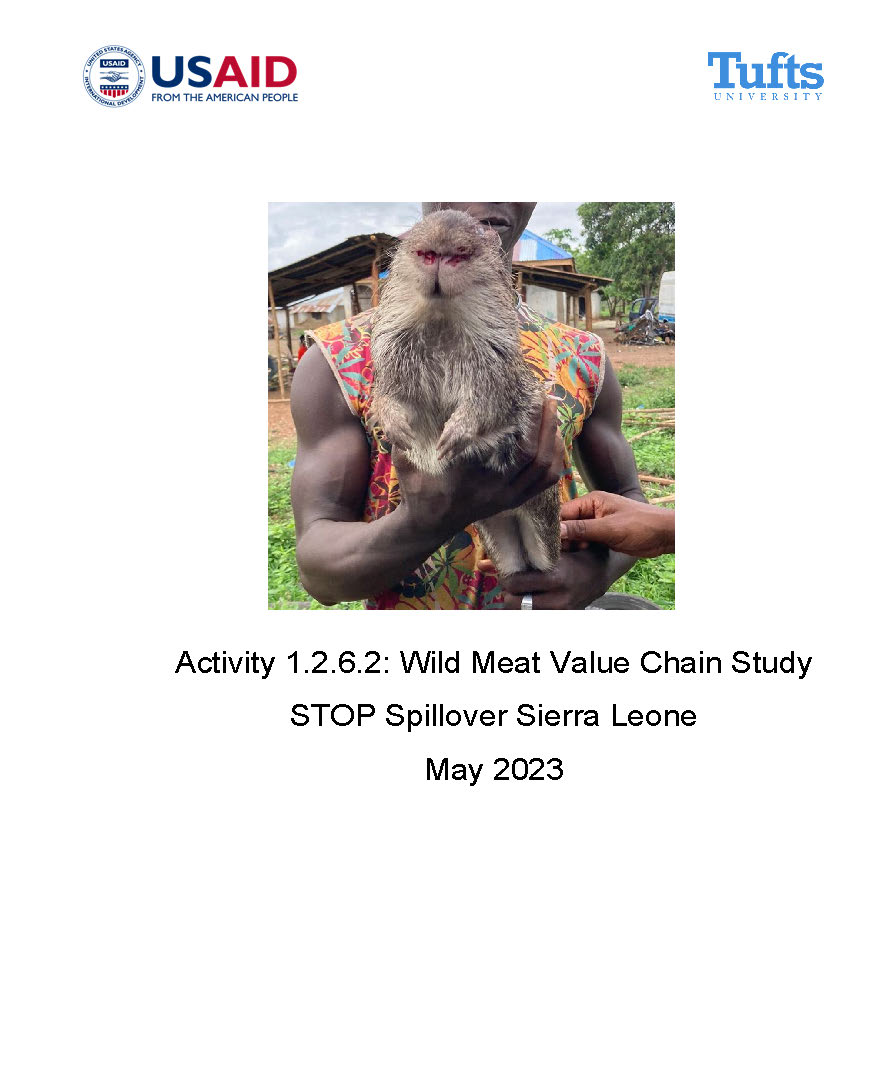
This report describes a study by the STOP Spillover Sierra Leone Country Team to identify critical control points along the wild meat value chain in Kenema District, social drivers and determinants of wildlife hunting and consumption, and behaviors of value chain actors that may be associated with an increased risk of zoonotic spillover.
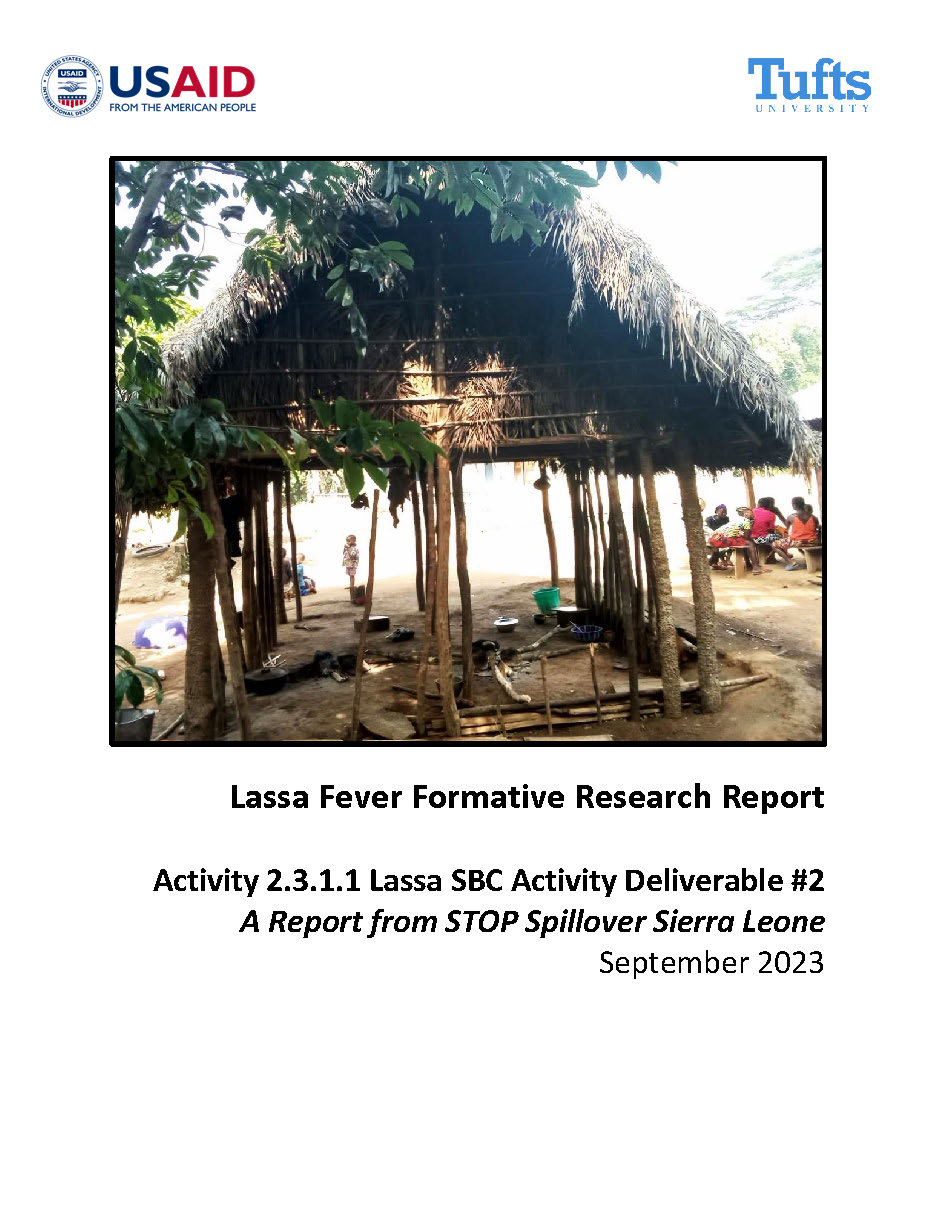
Lassa Fever Formative Research Report
This report summarizes formative research on the influencing factors (i.e., the political, economic, cultural, and environmental factors) and social and gender norms that facilitate or impede behavior change related to reducing risk for Lassa virus transmission in Kenema District in Sierra Leone.
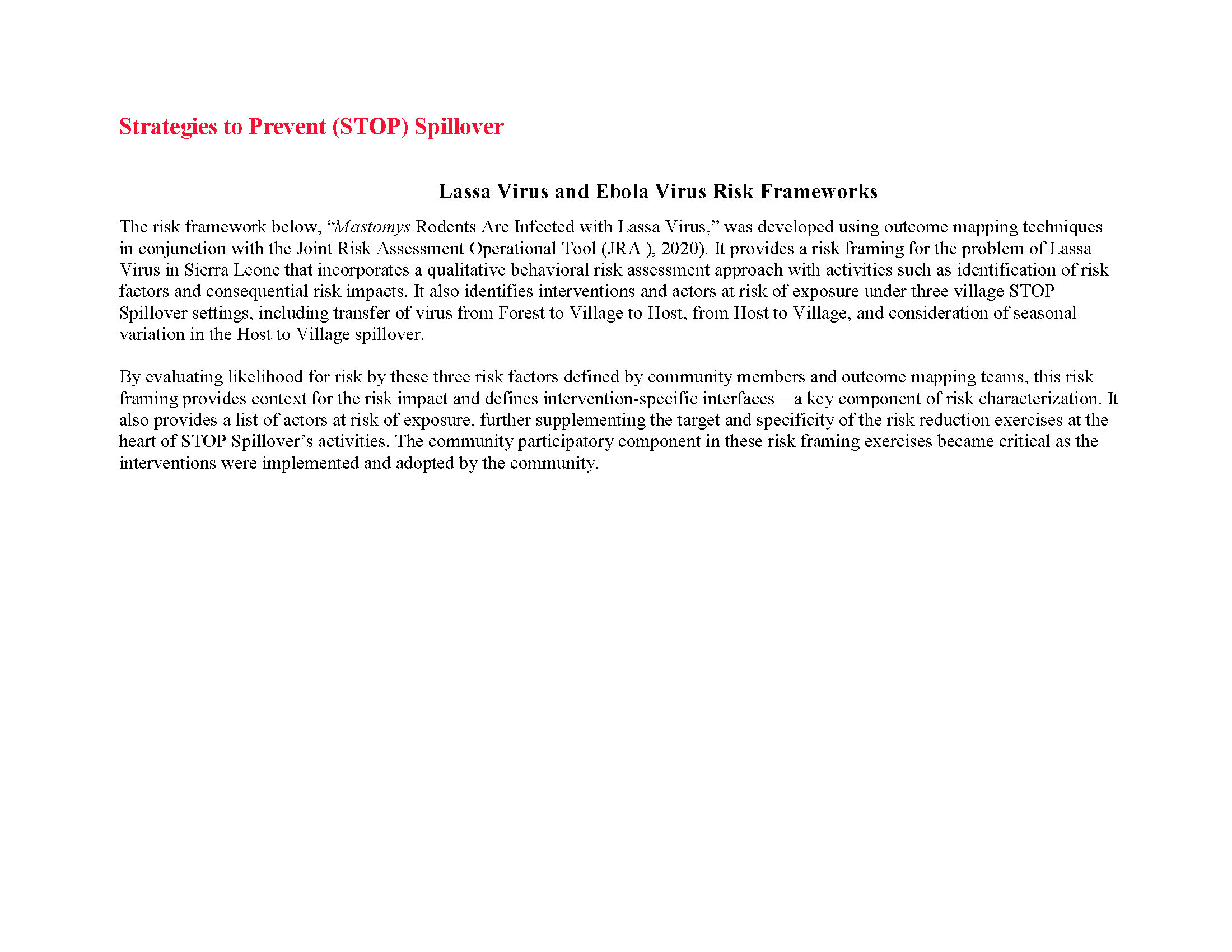
Lassa Virus and Ebola Virus Risk Frameworks
This document includes two risk frameworks for Sierra Leone: "Mastomys Rodents Are Infected with Lassa Virus" and "Bushmeat Are Infected with Ebola Virus." Community participation in the development of the risk frameworks was critical for the implementation of targeted interventions.
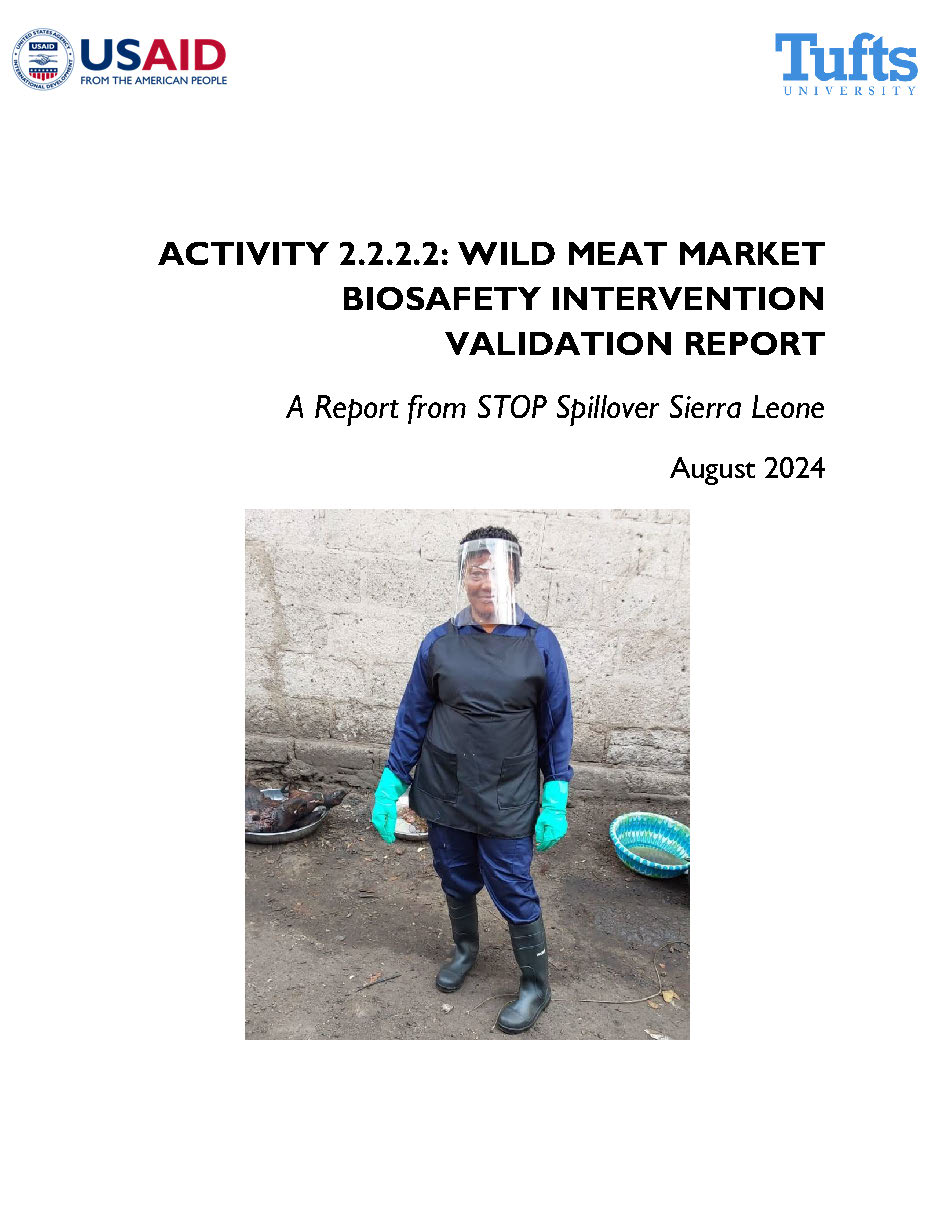
Wild Meat Market Biosafety Intervention Validation Report
This report summarizes a final validation exercise conducted by the STOP Spillover Sierra Leone Country Team in the Kingsway Corner Market in Kenema District. The exercise focused on identifying key factors influencing the adoption of co-designed risk reduction behaviors by wild meat traders and processors in the market.
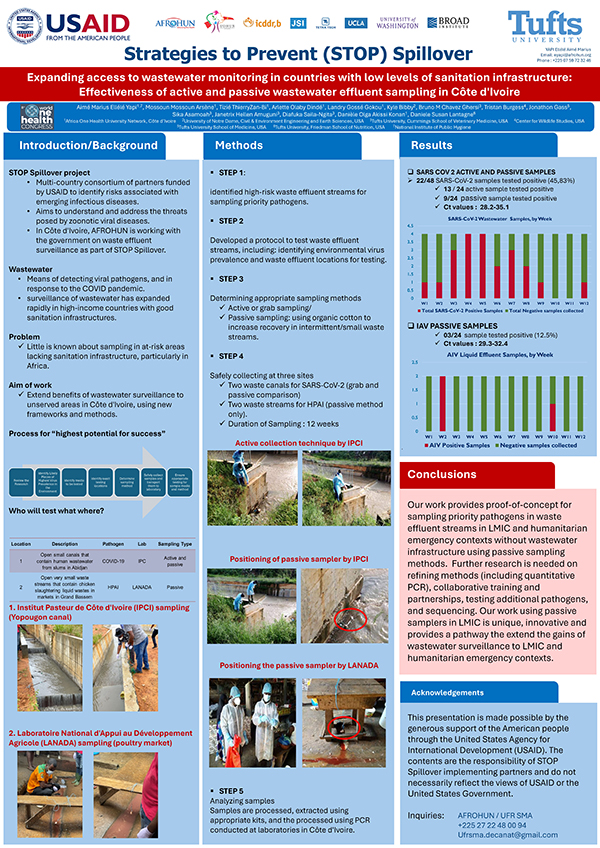
This STOP Spillover poster, presented at the 8th World One Health Congress 2024, describes active and passive wastewater effluent sampling in three at-risk sites lacking sanitation infrastructure in Côte d'Ivoire.
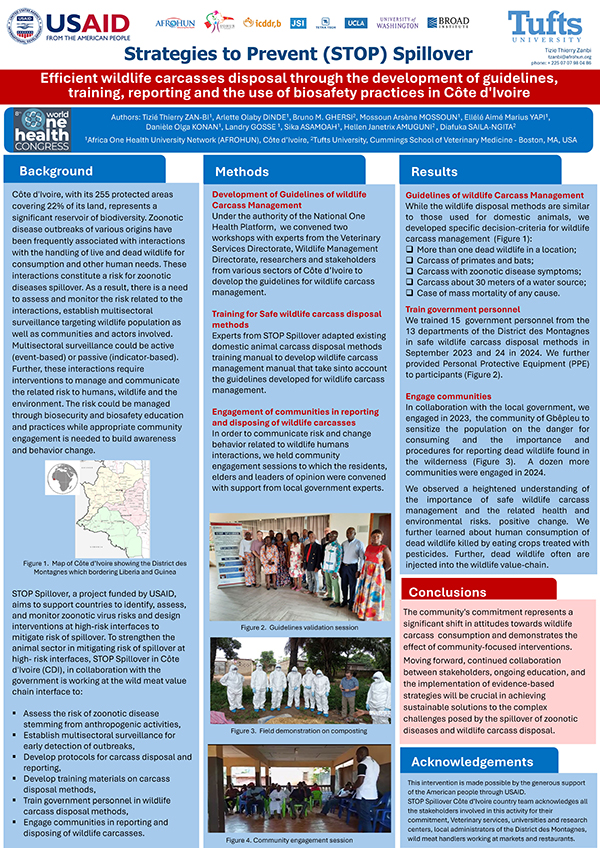
This STOP Spillover poster, presented at the 8th World One Health Congress 2024, summarizes the STOP Spillover Côte d'Ivoire Country Team's work to develop with stakeholders guidelines for wildlife carcass management, train government personnel in safe wildlife carcass disposal methods, and implement community engagement sessions on the risks associated with wildlife carcass consumption.
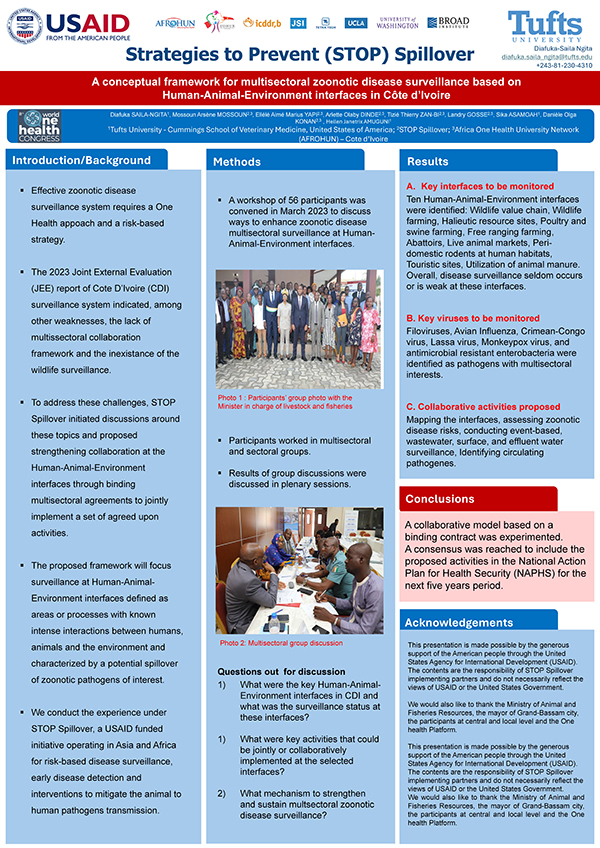
This STOP Spillover poster, presented at the 8th World One Health Congress 2024, describes the convening of a multisectoral workshop on enhancing zoonotic disease surveillance at human-animal-environment interfaces at risk for spillover of zoonotic pathogens.
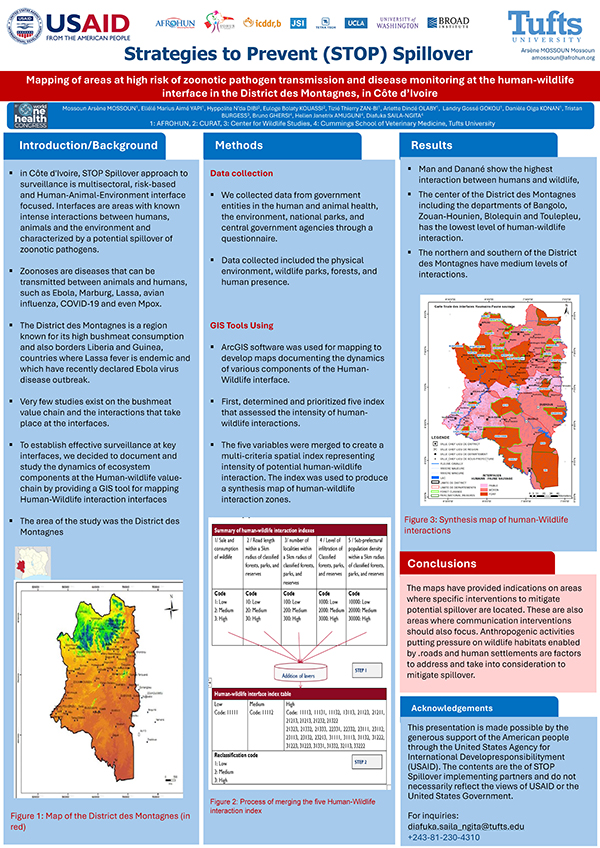
This STOP Spillover poster, presented at the 8th World One Health Congress 2024, describes the use of ArcGIS software to develop maps documenting the dynamics of ecosystem components at human-wildlife interaction zones with the potential for spillover of zoonotic pathogens.
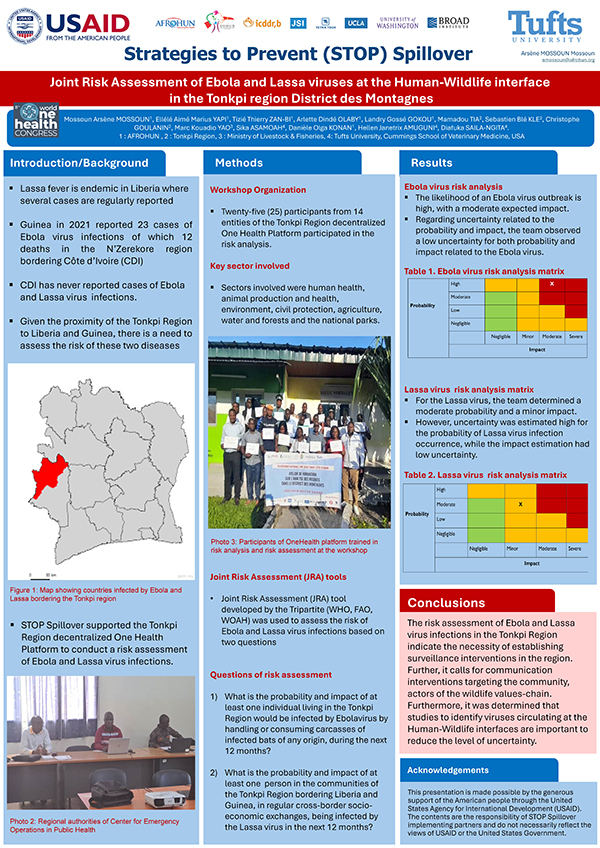
This STOP Spillover poster, presented at the 8th World One Health Congress 2024, summarizes a workshop that focused on assessing the risk for Ebola and Lassa virus infections in the Tonkpi Region of Côte d'Ivoire.
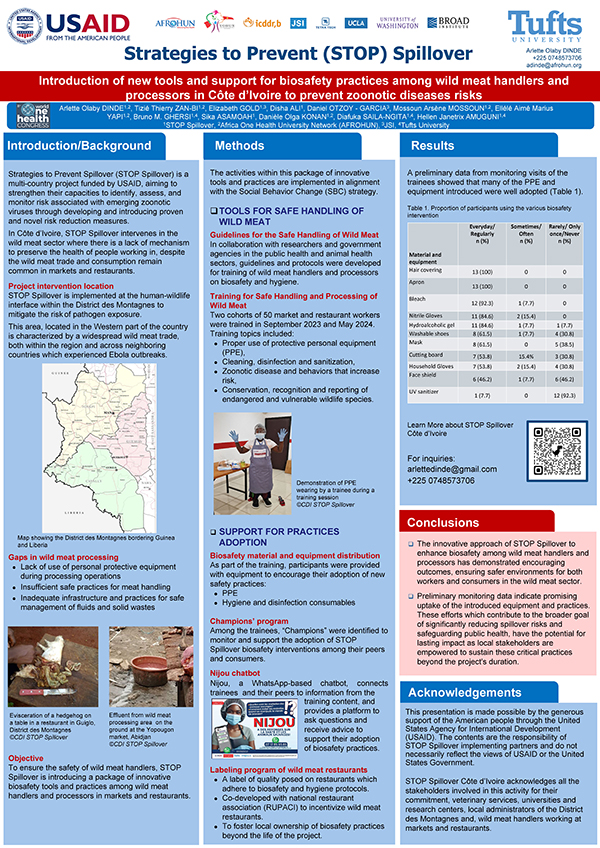
This STOP Spillover poster, presented at the 8th World One Health Congress 2024, describes the STOP Spillover Côte d'Ivoire Country Team's development of guidelines and protocols for wild meat handling and processing, training in wild meat handling and processing for market and restaurant workers, and distribution of biosafety equipment.
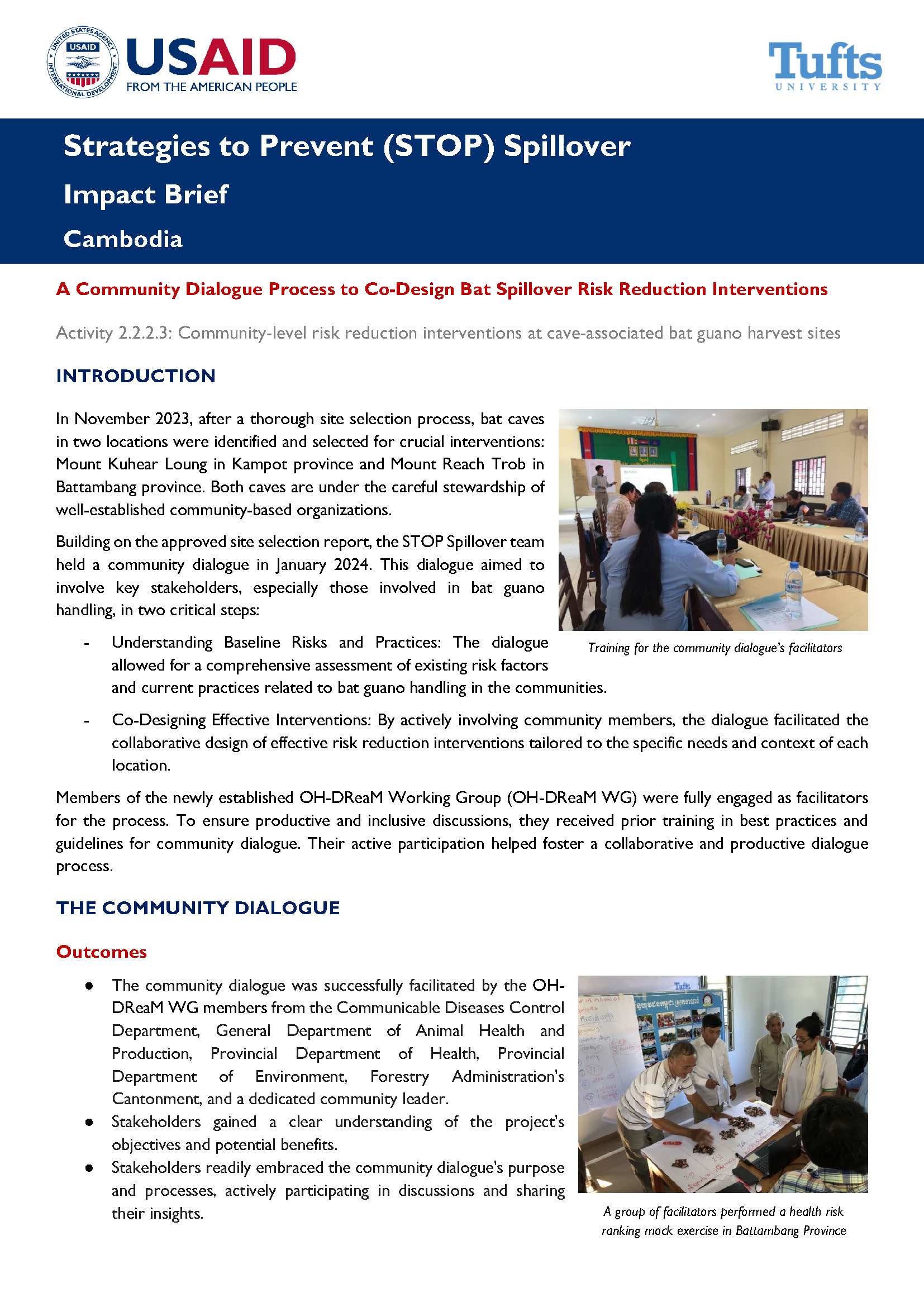
Impact Brief: A Community Dialogue Process to Co-Design Bat Spillover Risk Reduction Interventions
This brief describes community dialogues in Kampot and Battambang provinces that were facilitated by the STOP Spillover Cambodia Country Team. The dialogues aimed to involve key stakeholders, especially those involved in bat guano handling, in understanding baseline risks and practices and co-designing effective interventions.
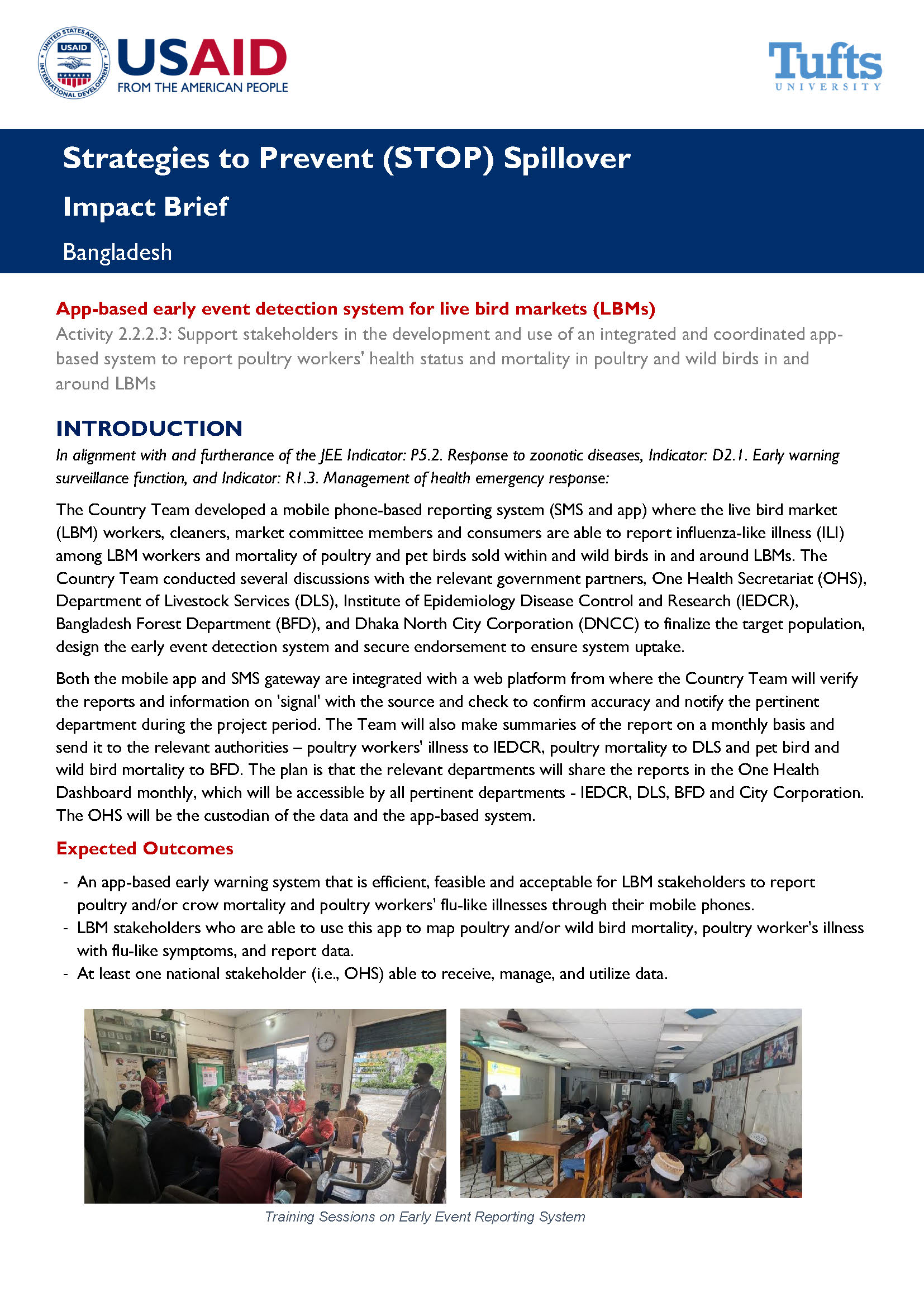
Impact Brief: App-Based Early Event Detection System for Live Bird Markets
This brief describes an app-based early warning system that enables live bird market workers, cleaners, market committee members, and consumers to report poultry and/or crow mortality and poultry workers' flu-like illnesses using their mobile phones.
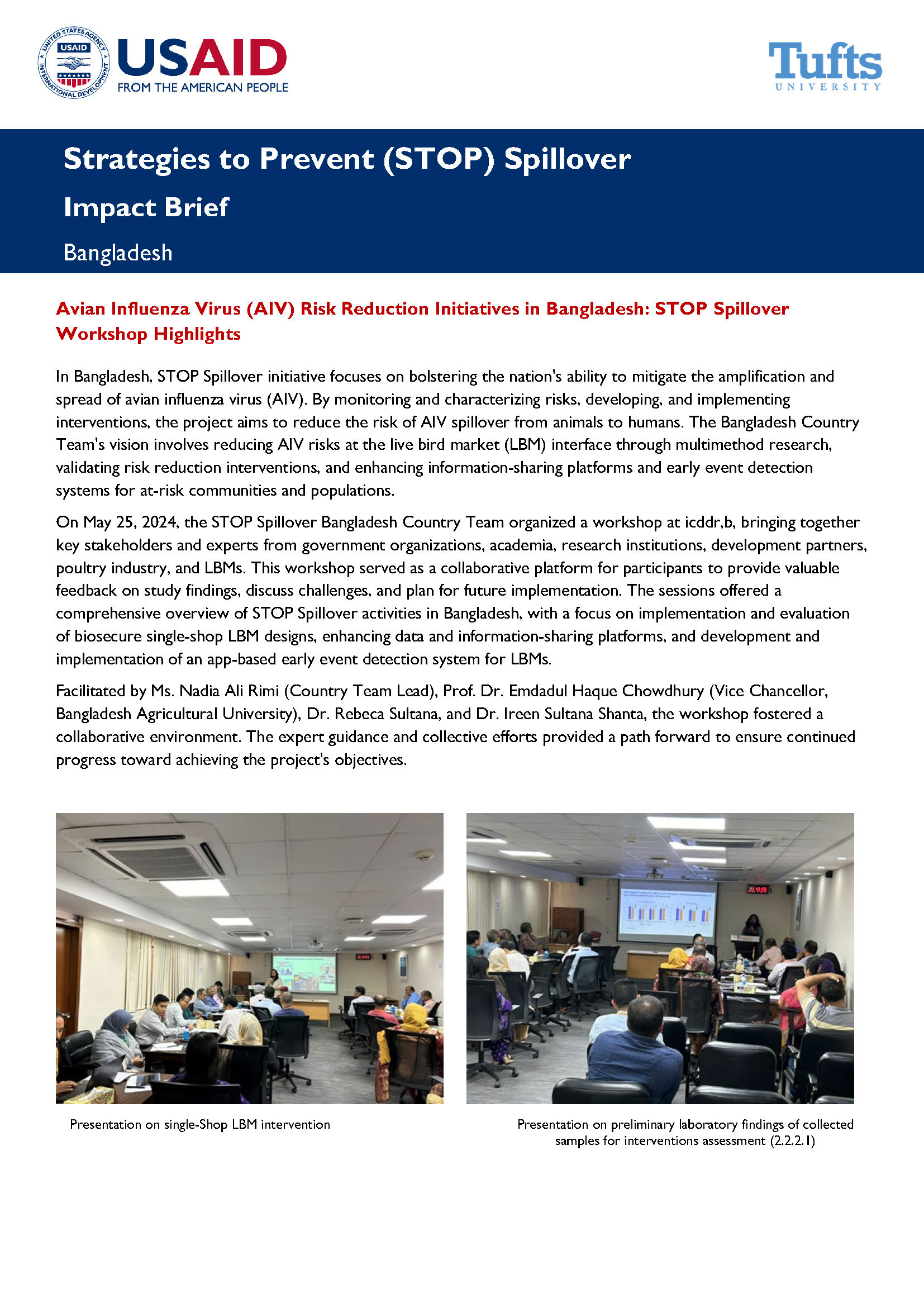
This brief summarizes a workshop that brought together stakeholders to discuss STOP Spillover activities in Bangladesh, in particular the implementation and evaluation of biosecure single-shop live bird market (LBM) designs, enhancing data and information-sharing platforms, and the development and implementation of an app-based early event detection system for LBMs.
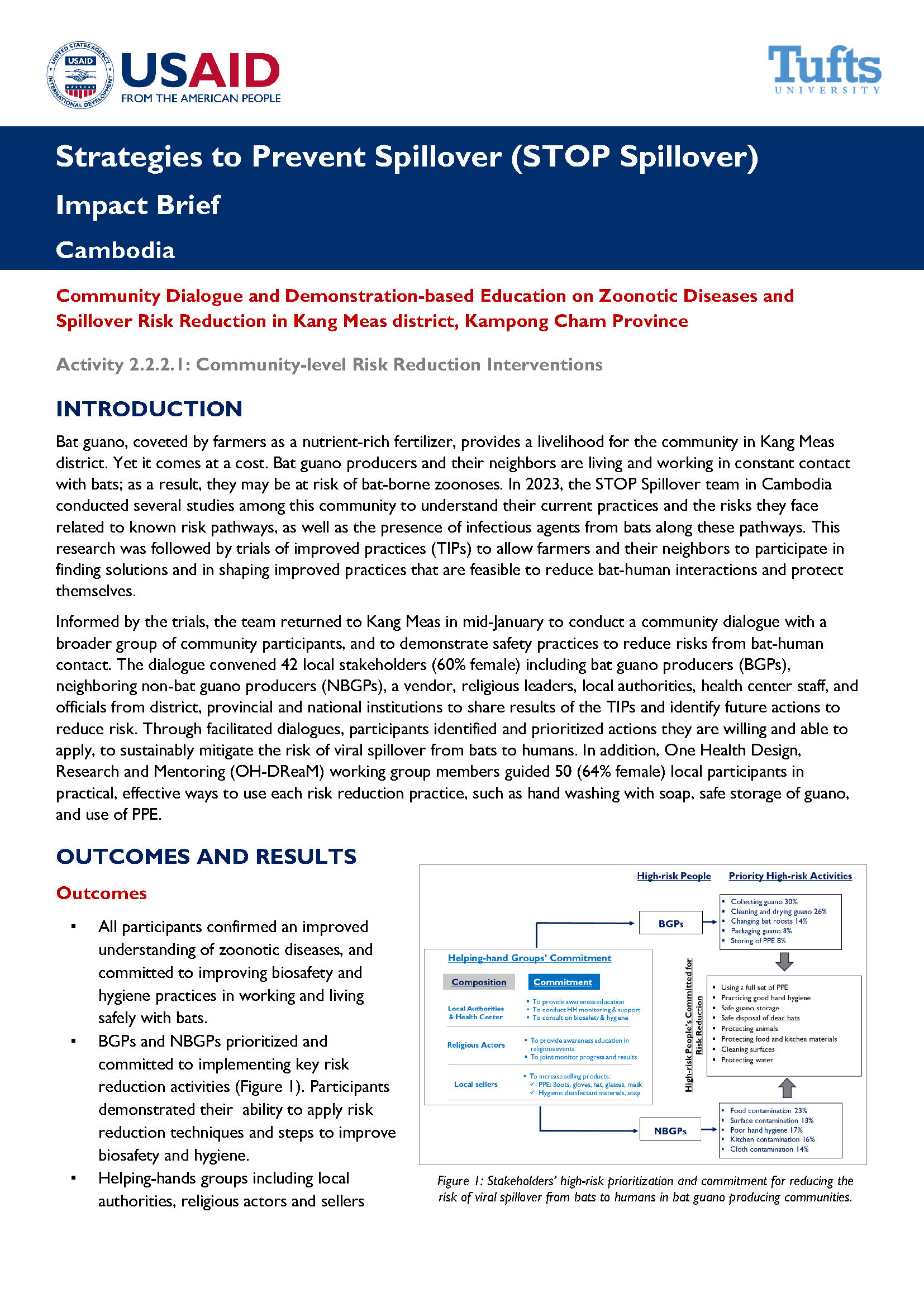
This brief describes a dialogue with community stakeholders to demonstrate safety practices to reduce risks from bat-human contact and to identify and prioritize actions that participants were willing to take to mitigate the risk of viral spillover from bats to humans.
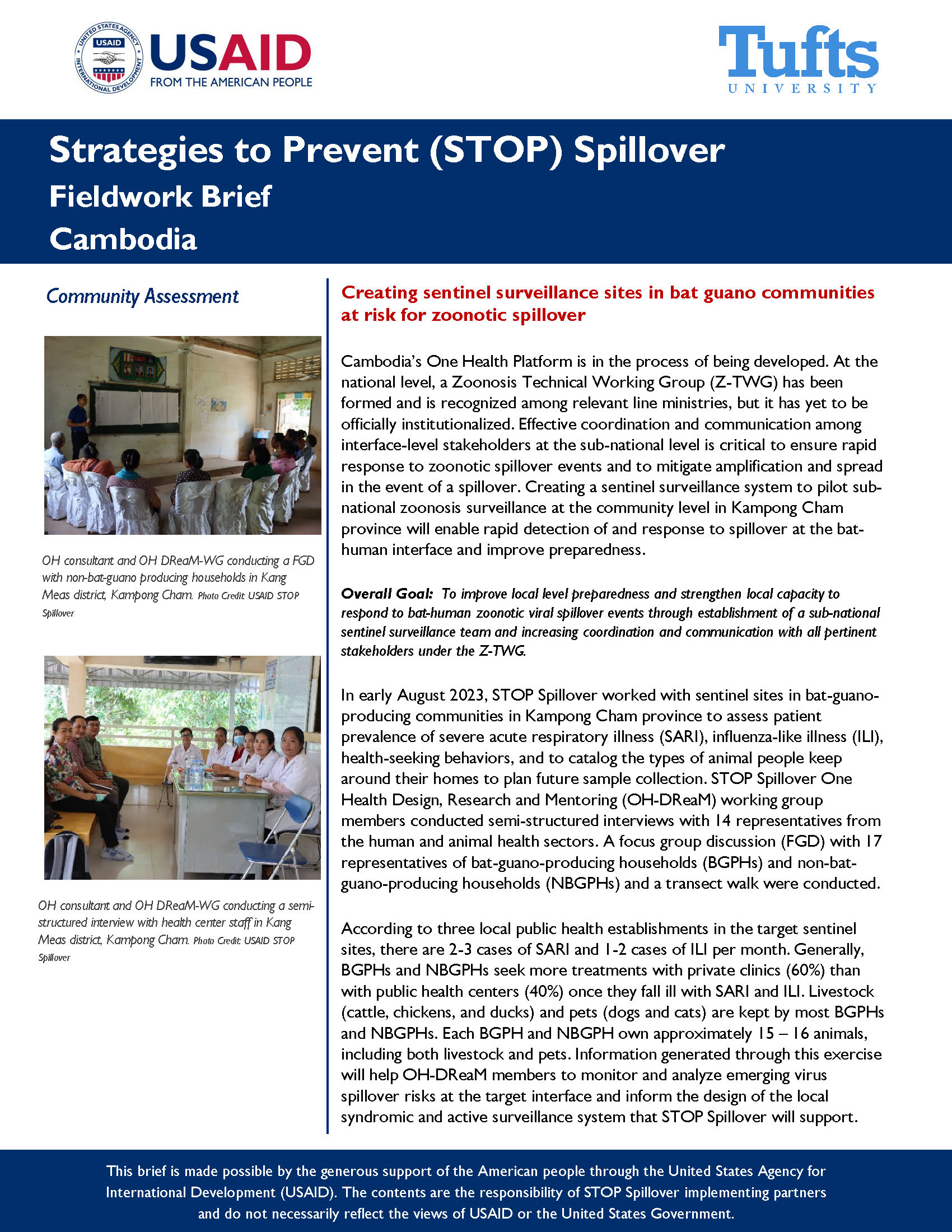
This brief describes the STOP Spillover Cambodia Country Team's work at sentinel sites in bat-guano-producing communities in Kampong Cham province to assess patient prevalence of severe acute respiratory illness, influenza-like illness, and health-seeking behaviors, and to catalog the types of animals kept near homes.
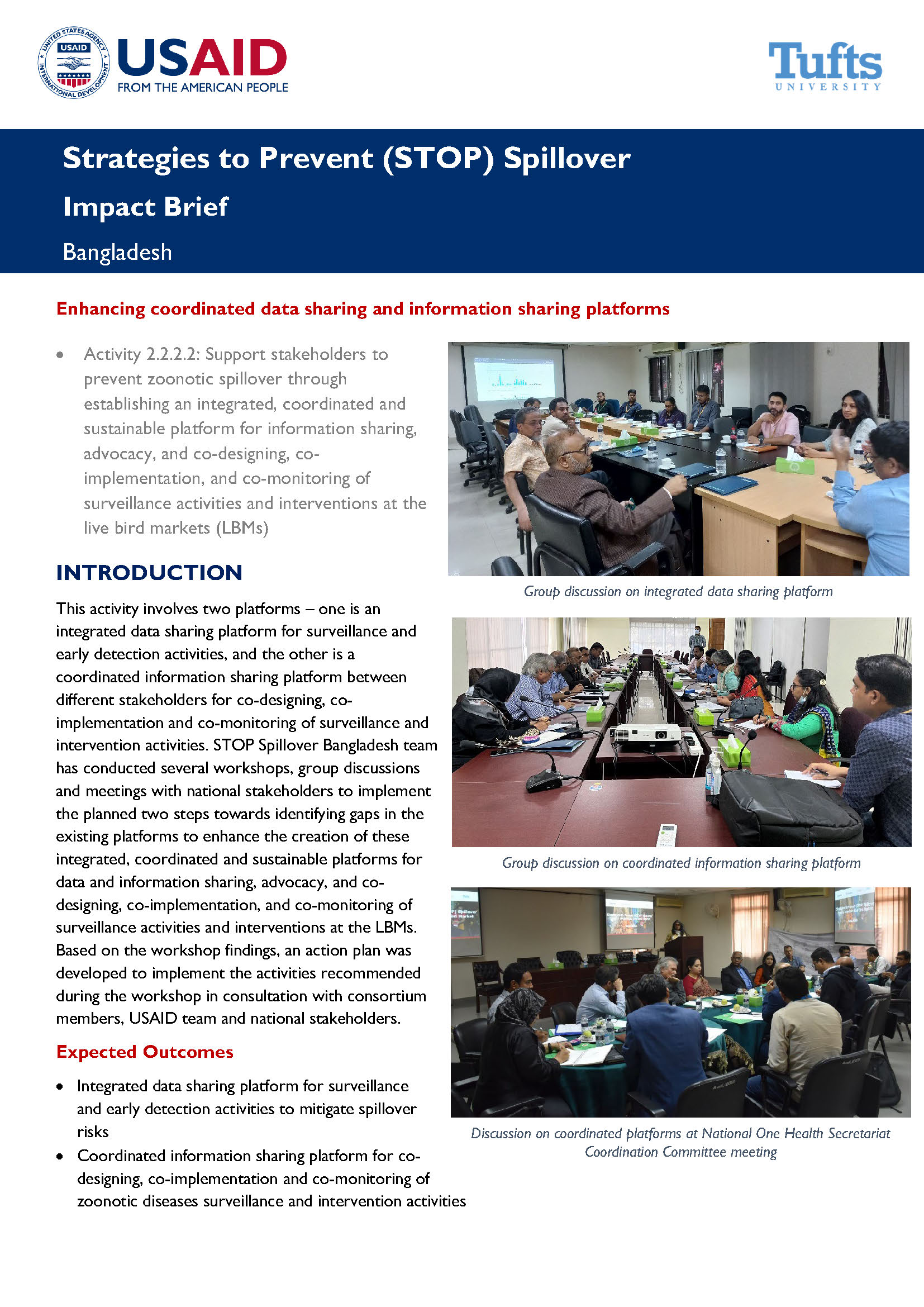
Impact Brief: Enhancing Coordinated Data Sharing and Information Sharing Platforms
This brief describes the STOP Spillover Bangladesh Country Team's work on an integrated data sharing platform for surveillance and early detection activities and a coordinated information sharing platform for co-design, co-implementation, and co-monitoring of surveillance and intervention activities.
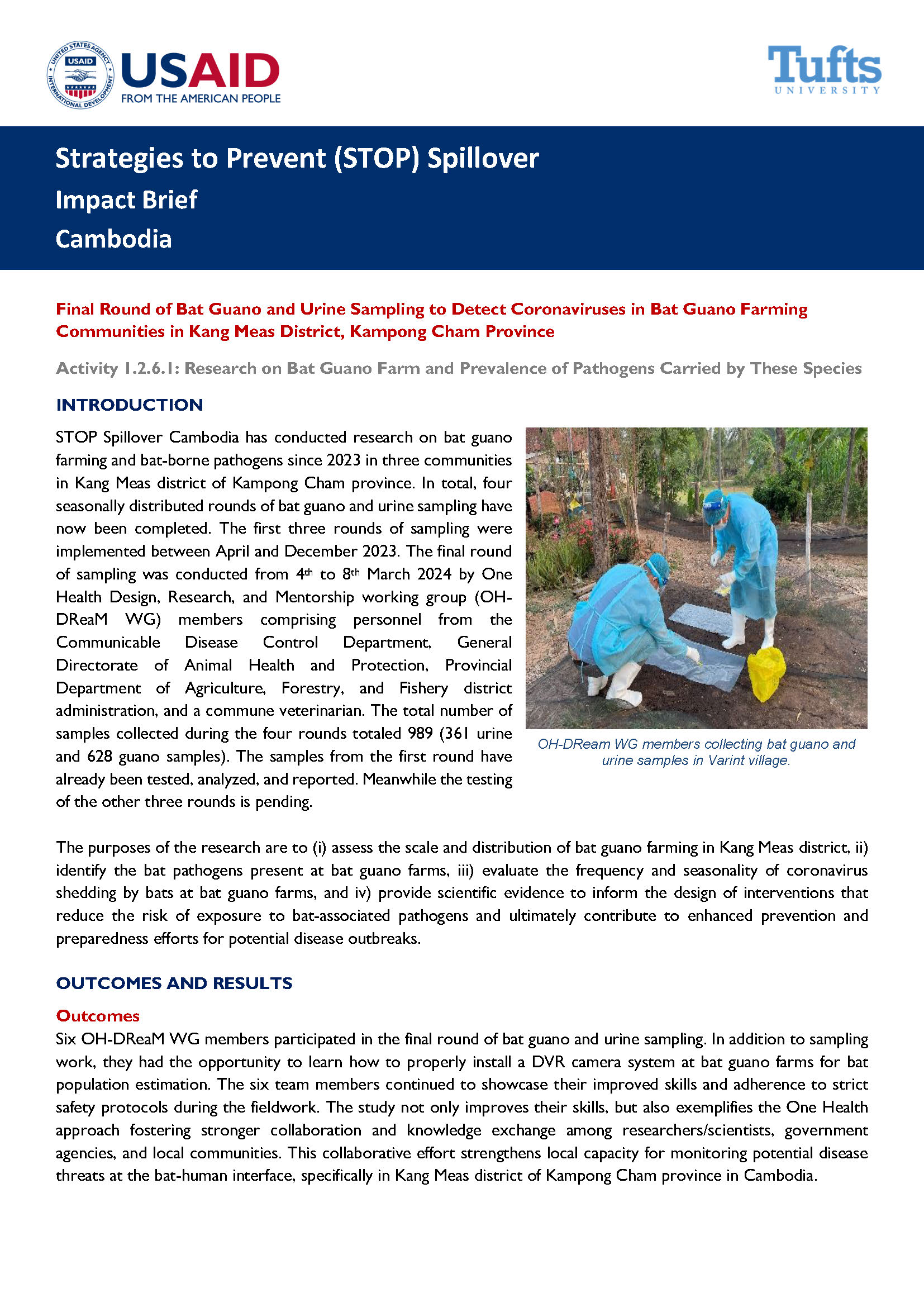
This brief describes the fourth seasonally distributed round of bat guano and urine sampling to identify bat pathogens present at bat guano farms, evaluate the frequency and seasonality of coronavirus shedding by bats at bat guano farms, and provide scientific evidence to inform the design of interventions to reduce the risk of exposure to bat-associated pathogens.
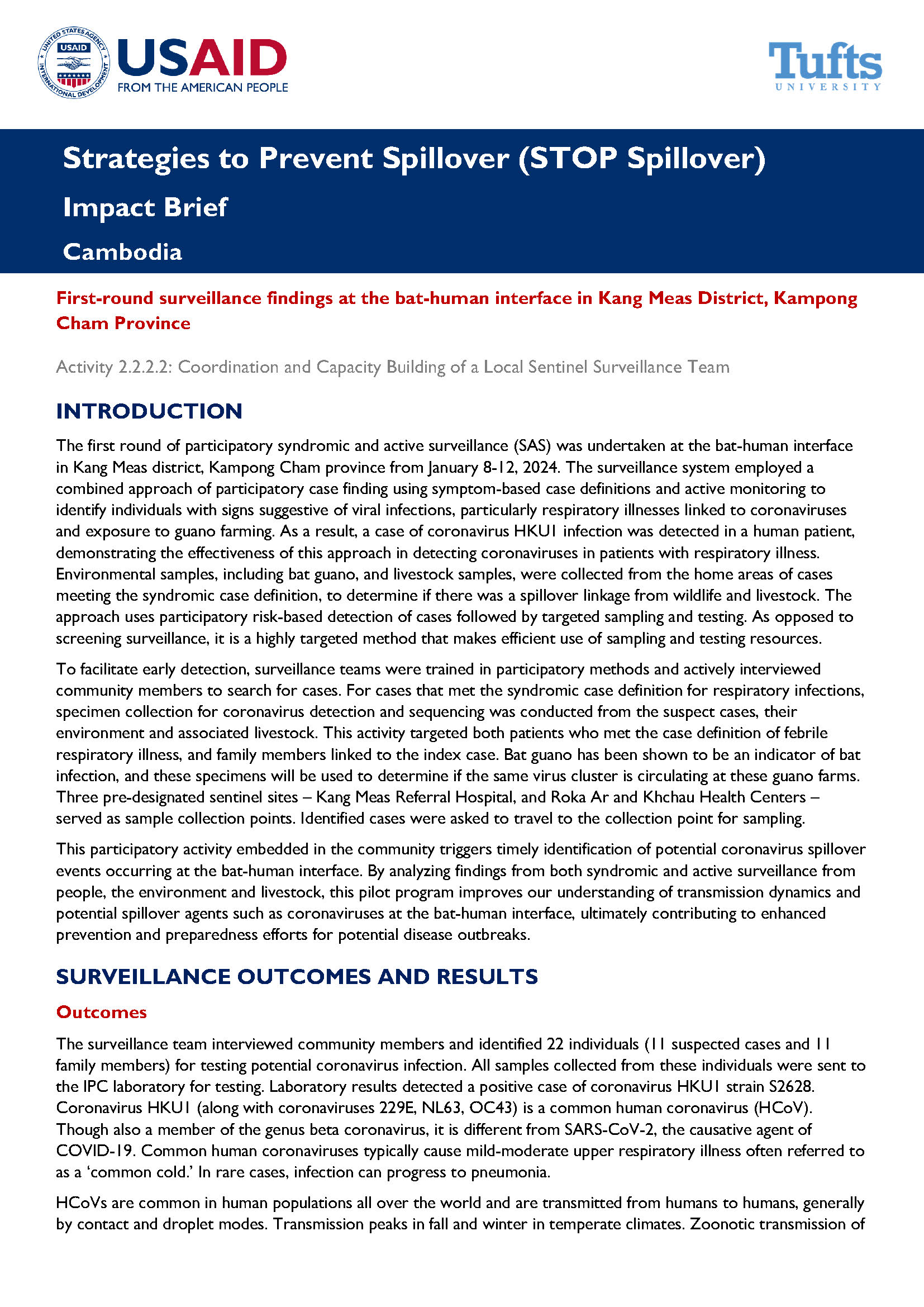
This brief summaries the first round of participatory syndromic and active surveillance undertaken at the bat-human interface employing a combined approach of participatory case finding using symptom-based case definitions and active monitoring to identify individuals with signs suggestive of viral infections (especially respiratory illnesses linked to coronaviruses) and exposure to guano farming.
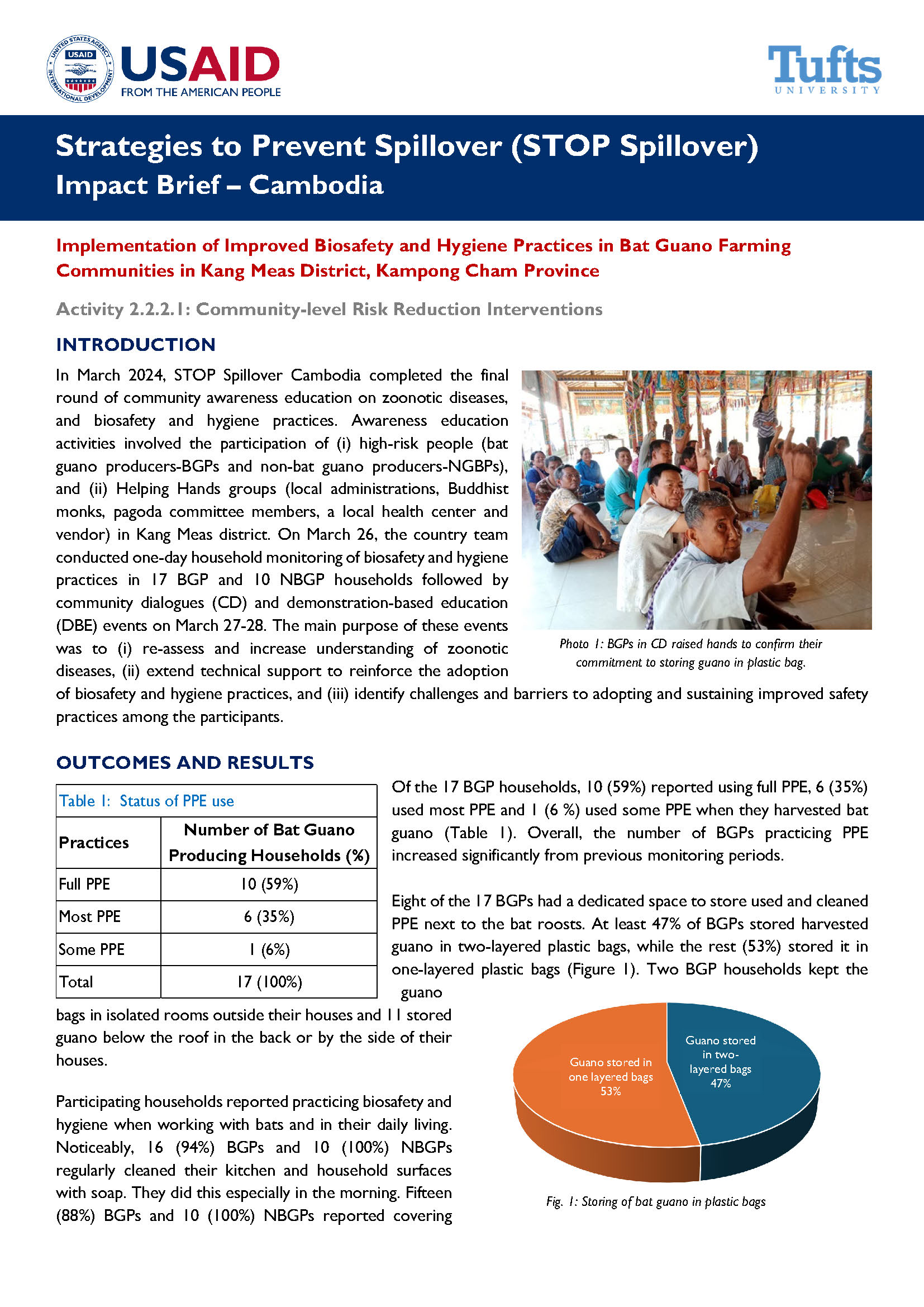
This brief summarizes household monitoring of biosafety and hygiene practices in some households that harvest bat guano and others that do not, as well as community dialogues and demonstration-based education events focused on reinforcing the adoption of biosafety and hygiene practices.